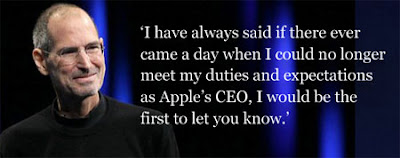Bloomberg News
Aug 11, 2011
Yahoo! Inc. has cost its shareholders so much money that a buyer would now be able take over the most- visited U.S. Web portal for less than the value of its stakes in Alibaba Group Holding Ltd. and Yahoo Japan Corp.
Yahoo has plummeted 91 percent over the past decade as it failed to keep Google Inc. and Facebook Inc. from siphoning off Internet users and advertising revenue. Sunnyvale, California- based Yahoo, which rejected an offer from Microsoft Corp. for as much as $47.5 billion three years ago, is now valued at $14 billion, according to data compiled by Bloomberg.
Putting Yahoo up for sale may help Carol Bartz recoup the losses its owners have suffered since she became chief executive officer in January 2009. While the company's revenue has fallen in the past two years, its investments in Alibaba Group and Yahoo Japan may be worth 44 percent more than Yahoo itself, Thornburg Investment Management said. Traders in the options market are also betting Yahoo will increase in value, ramping up bullish wagers to the highest level in almost two years.
"What you get is the core U.S. business for free," Di Zhou, Santa Fe, New Mexico-based analyst at Thornburg Investment, which oversees about $80 billion, including Yahoo shares, said in a telephone interview. Yahoo Japan and Alibaba are "more than enough to explain the current stock price. That was our initial investment thesis," she said.
Dana Lengkeek, a spokeswoman for Yahoo, declined to comment on rumors or speculation.
Advertising Revenue
Yahoo, a pioneer in providing information and services over the Internet, was founded in 1994 by Jerry Yang and David Filo at Stanford University.
Its home page aggregates news, offers free e-mail and provides services that help users do everything from finding a new house to getting a date. Yahoo, using technology provided by Redmond, Washington-based Microsoft, also competes with Google for users searching the Internet for information.
Once an $80 billion company, Yahoo's share of the U.S. online ad market will drop to 9.7 percent next year from 16 percent in 2009, according to New York-based firm EMarketer Inc. Google's will increase to 45 percent, while Facebook will more than triple its portion of the online ad market to 7.8 percent.
Last month, Yahoo reported second-quarter revenue that fell short of estimates as Bartz's overhaul of the U.S. sales force made it harder to close deals and slowed growth in advertising for banner ads and video clips.
Comparative Returns
Bartz said at the time that sales were held back as more employees left during the overhaul than the company anticipated.
"Now, we're intensely focused on monetizing those sites with the right solutions," Bartz said in a conference call with analysts last month. "The changes we're making will bear fruit later this year and into 2012."
Yahoo still forecast sales this quarter of $1.05 billion to $1.1 billion, short of the $1.12 billion analysts projected.
The setbacks, along with a global rout in equities in the past week as the U.S. had its AAA credit rating cut by Standard & Poor's for the first time, erased all the gains since Bartz was named Yahoo's CEO in January 2009.
Since Bartz started, Yahoo has declined 8.4 percent through yesterday. In the same span, Mountain View, California-based Google, owner of the largest Internet-search engine, rose 74 percent, while the S&P 500, the benchmark index for American equity, gained 28 percent.
"The stock is trading probably where it should given the growth prospects," said Scott Billeadeau, who helps oversee $17 billion at Fifth Third Asset Management in Minneapolis. "Yahoo is a brand. It just doesn't seem like they've been able to increase the value of that brand."
Relative Value
With Yahoo closing at $11.09 a share yesterday, the company sells for less relative to its per-share earnings than at any time since at least 1997, data compiled by Bloomberg show.
Today, Yahoo rose 9 percent to $12.09, the biggest advance since December 2008 and almost double the S&P 500's gain.
Thornburg estimates that Yahoo's Asian assets alone may be worth almost $16 a share. Yahoo has a 43 percent holding in Alibaba Group, China's biggest e-commerce company. Through that investment, Yahoo owns stakes in Taobao.com, China's largest Internet shopping site, and Alibaba.com, which offers e-commerce services for businesses.
Yahoo will also get compensation for Alipay, China's most popular online-payment service, which Alibaba transferred to a company controlled by Chairman Jack Ma last year.
The assets give Yahoo a foothold in China, the world's largest Internet market with 485 million users at the end of June, according to data from the government-sponsored China Internet Network Information Center.
Sum of Parts
Using revenue and earnings estimates for 2012, Thornburg's Zhou said Yahoo's stakes in each of the Alibaba businesses are worth a combined $11.45 a share, while Yahoo's 35 percent stake in Yahoo Japan, the Tokyo-based operator of Japan's most-visited web portal, is valued at $4.50 a share.
Add Yahoo's $2.55 billion in cash and the company may be worth about $18 a share -- without accounting for its U.S. operations, based on Zhou's sum-of-the-parts analysis, which adjusts for the value of potential taxes and stakes that aren't immediately transferable.
The discount may entice private equity firms, which can buy Yahoo's U.S. earnings virtually for free, according to Herman Leung, an analyst at Susquehanna Investment Group in San Francisco.
Yahoo! Finance, which streams business news and displays real-time stock prices, is still the most popular finance-news website with 40 million users in June, according to ComScore Inc. in Reston, Virginia. That's almost double that of AOL Money & Finance, the second-most visited site.
'Zero Credit'
Google Finance had fewer than 2 million users in June and wasn't ranked in the top 20, data compiled by ComScore showed.
Leung also said Yahoo would be attractive in a buyout because of the cash it generates from its U.S. business.
Based on an analysis from Evercore Partners Inc., Yahoo's Asian investments amount to $8.10 a share, about half the value of Thornburg's estimates. Using the lower projection, Yahoo's U.S. unit has an implied value of $2.99 based on yesterday's closing price, or 7.3 times the company's free cash flow per share in the past 12 months, data compiled by Bloomberg show.
Google sells for about 22 times its cash from operations after capital expenses, according to the data.
"Yahoo can take a break from the public markets," Leung said in a telephone interview. "Especially if the market is going to give you zero credit for your core business. Yahoo shareholders will go for anything at this point."
'Right Off the Bat'
A Yahoo purchase may make sense for Providence Equity Partners in Providence, Rhode Island, and San Francisco-based Hellman & Friedman, which agreed to sell DoubleClick Inc. to Google for $3.1 billion in 2007, according to Leung.
Andrew Cole, a spokesman for Providence Equity, declined to comment on whether the firm is interested in buying Yahoo, as did Kelly Smith, a spokeswoman for Hellman & Friedman.
Microsoft, which can now buy Yahoo at less than half what it offered in 2008, would "start making money right off the bat" from acquiring the company, according to Sameet Sinha, an analyst at B. Riley & Co. in San Francisco.
Microsoft's own online business, which includes its Bing search engine that Yahoo uses, had an operating loss of $2.6 billion in 2011.
"Bing has not moved the needle. Microsoft and Yahoo have had little success with keyword search" says SEO consultant, Jack Roberts of Peak Positions.
"Yahoo was the most popular search engine for years, only they failed to protect their original pay per click advertising system developed by Overture / Go To.
"Yahoo let Google run with the Overture Ad Delivery System and AdWords was born."
As a leading search engine optimization specialist Roberts consults with many Fortune 500 companies and contends that both Yahoo and Microsoft failed to embrace the power of keyword search years ago.
"Yahoo gave search away" at least that's how most of us working in the industry feel adds Roberts.
"After several management teams and executive mis-steps, Yahoo finally gave up on keyword search and outsourced it when they sold it to Microsoft. Bing has not delivered search market share gains and now Google is left to run unchallenged".
"The thing that has always made sense to me is Microsoft," said Lawrence Haverty, a money manager at Gamco Investors Inc., which oversees about $36 billion, including Yahoo shares. "They have this joint venture on search. They tried to buy them once."
Risks and Rewards
Adam Sohn, a spokesman for Microsoft, declined to comment on whether it was considering bidding for Yahoo.
Colin Gillis, an analyst with BGC Partners LP in New York, said one of the biggest risks for potential buyers would be trying to unlock the value from Yahoo's investments in China.
Yahoo, Alibaba Group's biggest shareholder, ended a four- month dispute last month with the Hangzhou, China-based company over how it should be compensated for the ownership change in Alipay to a company controlled by Ma.
Alibaba will get as much as $6 billion if Alipay sells shares to the public. Yahoo disclosed the loss of Alipay in May, saying it only learned about the August 2010 transfer in March.
"What we learned from Alipay is there are risks associated with these assets," Gillis said. "You still have to answer the questions that Yahoo is facing right now, which is how do you turn those assets into cash."
Traders in the options market are more bullish on Yahoo. The ratio of outstanding calls to buy Yahoo shares versus puts to sell rose to 2.21-to-1 last week, the highest since September 2009, and was at 2.19 as of the last close. The fastest-growing bet last week was the October $15 call, which increased by almost 10,000 contracts, data compiled by Bloomberg show.
That implies a 35 percent gain from yesterday's price.
"The cheaper the stock gets the more attractive it becomes," said Aaron Kessler, an analyst at ThinkEquity LLC in San Francisco. "You're getting pretty close to the point where you're almost showing zero value being attributed to the core business."

















